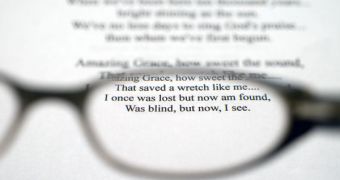It's a widely known fact that the brain, while indeed collecting all the stimuli it sees around us, only presents us with a minor fraction of those stimuli that spring into our conscious mind. When taking this into account, we are, in a sense, partially blind even before a doctor gives the verdict. A new scientific study brings hope to those who want to change this neural limitation. The investigation shows that people can actively train themselves to see stimuli that would have otherwise remained invisible and hidden from sight, e! Science News reports.
Caspar Schwiedrzik, of the Max Planck Institute for Brain Research, in Germany, has been the lead researcher for the new study, which appears in the latest issue of the Association for Research in Vision and Ophthalmology's Journal of Vision. The expert argues that the brain, just like any other organ, can be guided to improve its own performances and visual perceptions.
“A question that had not been tackled until now was whether a hallmark of the human brain, namely its ability to produce conscious awareness, is also trainable. Our findings imply that there is no fixed border between things that we perceive and things that we do not perceive – that this border can be shifted,” Schwiedrzik explains.
In the experiments, test subjects were made to look at two images, one of a square and one representing a diamond. The second image was masked as soon as it was shown, so the participants did not have sufficient time to consciously make out its shape. However, after five sessions of this, all of them were able to accurately identify the diamond, in circumstances when others could not see it at all. If the brain can, indeed, be trained to perform such an action, then this could benefit blindsight patients as well.
The people had their primary visual cortex destroyed by traumas or strokes, but somehow their brains continue to process visual information on some level. “Our study suggests that it might in principle be possible for blindsight patients to recover some visual awareness, and thus our findings might open a venue for a new line of research and potential treatments for patients with acquired cortical blindness,” Schwiedrzik concludes.

 14 DAY TRIAL //
14 DAY TRIAL //